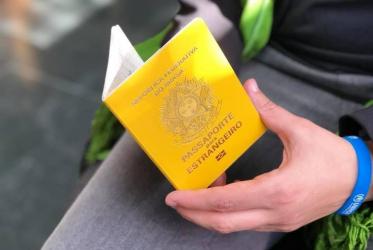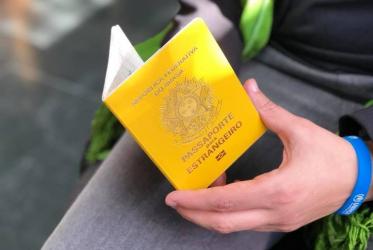Displaying 1 - 12 of 12
04 November 2022
https://www.oikoumene.org/livestream
WCC Webinar: “Statelessness, A Product of Racialized Nationality?”
24 March 2022
Online - https://us02web.zoom.us/webinar/register/WN_zq7lb0rFQlq_mgwb45fEyQ
Webinar “Realizing Equal Nationality Rights for All”
04 November 2021
https://us02web.zoom.us/webinar/register/WN_FNyMmKC3TW6SNfCouZDhuw
With ongoing discourse about people on the move, CCME’s work grows
03 November 2017





